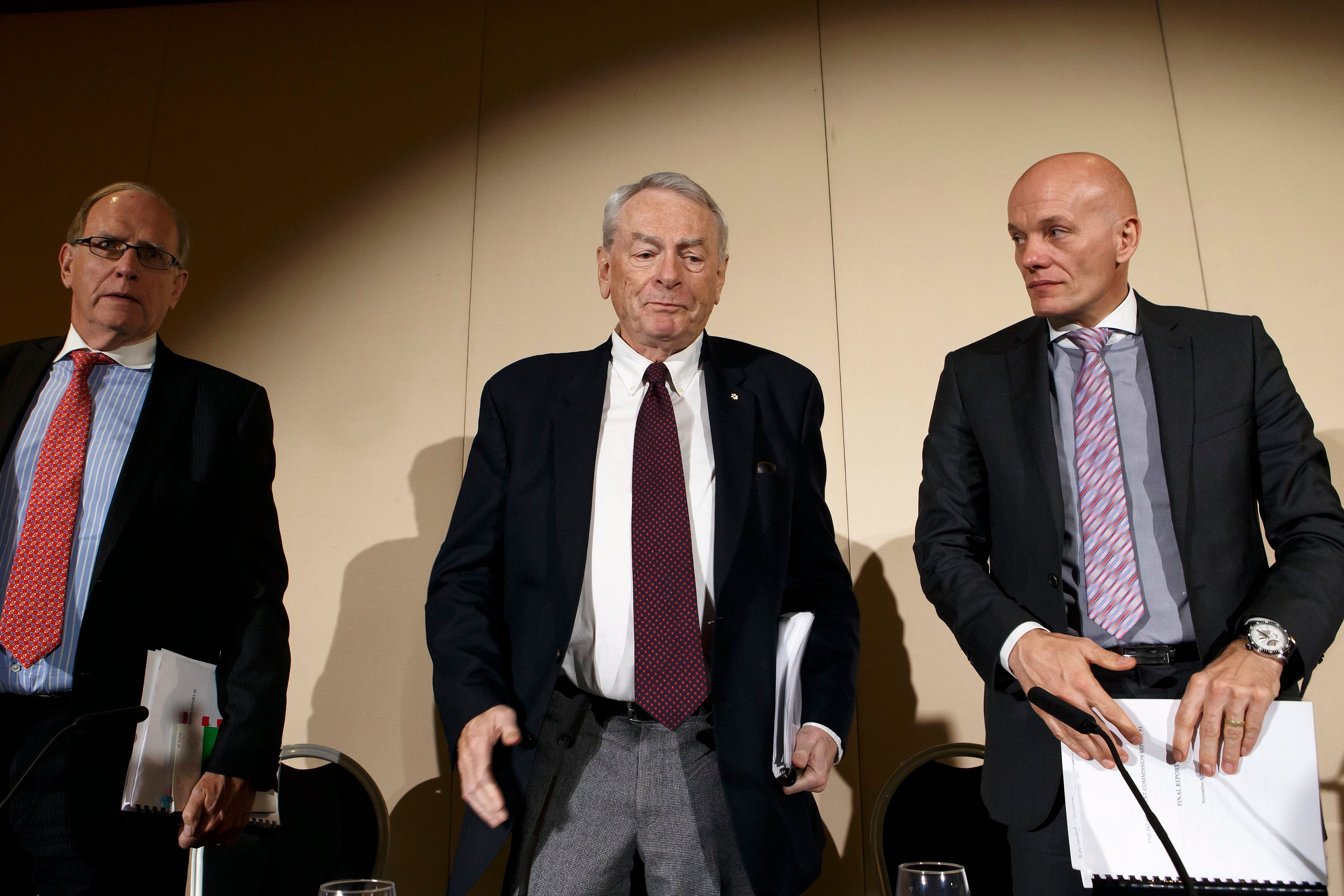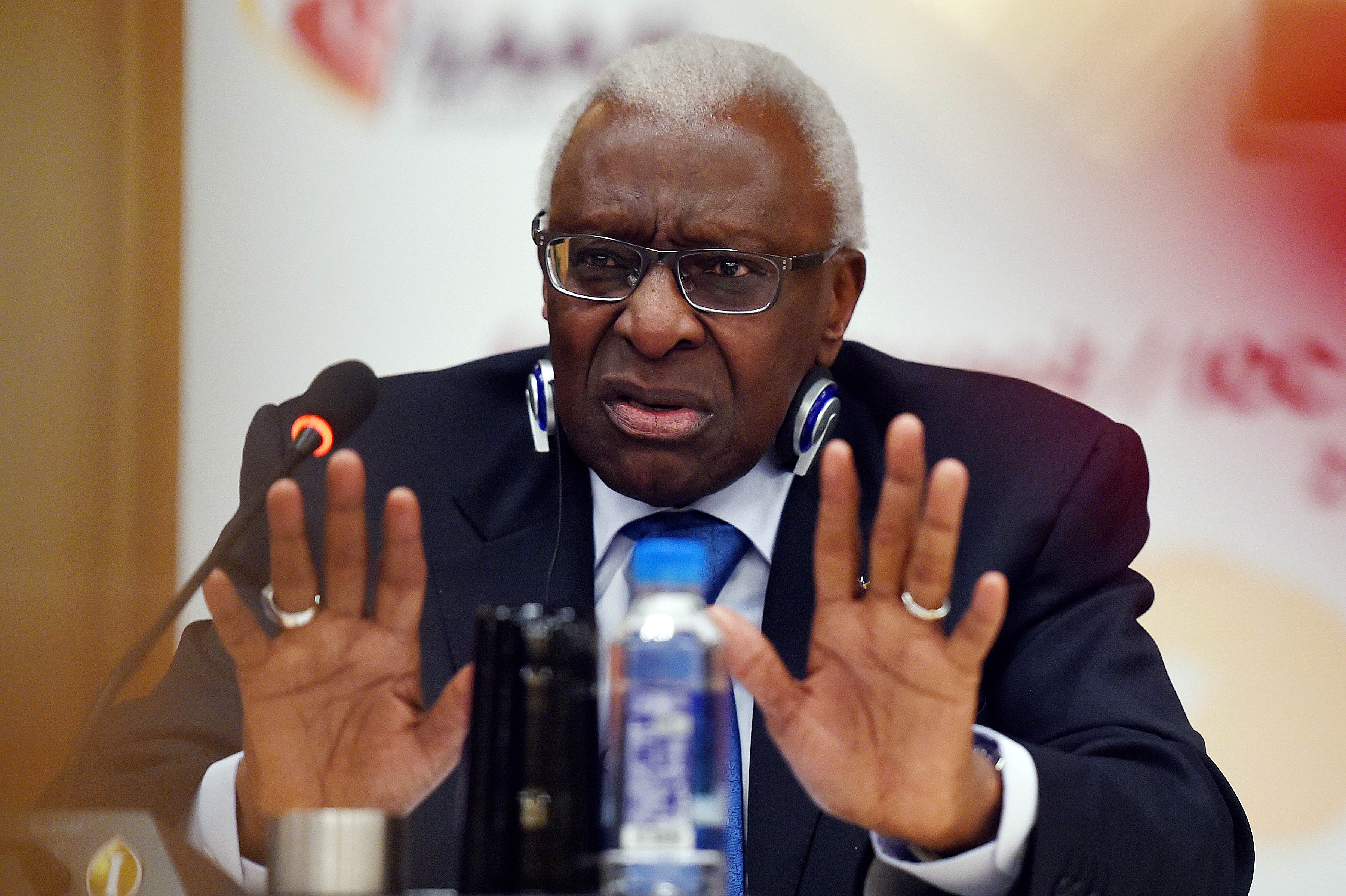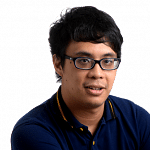The athletics world has been thrown into turmoil following the release of a damning independent report - commissioned by the World Anti-Doping Agency (Wada) - on Monday (Nov 9).
Outlining the sheer scope of a government-sponsored doping programme in Russia, the wide-ranging, 325-page report cast serious aspersions on a sport already notorious for its inability to stamp out drug cheats.
Here are five things to know about the scandal, which was described by one of the report's authors to be on a scale much larger than the ongoing crisis that has engulfed world football body Fifa.
1. Wada report is the culmination of an 11-month investigation

The seeds of the investigation were planted following a documentary aired by German state broadcaster ARD on Dec 3 last year.
Called Secret Doping Dossier: How Russia Produces Its Winners, the 60-minute documentary contained "evidence" of systematic state-sponsored doping in Russian athletics, which prompted International Olympic Committee (IOC) president Thomas Bach to publicly call for a probe.
Among the allegations included how Russian athletes paid five per cent of their earnings to local doping officials to supply banned substances and cover-up tests, and also the role the International Association of Athletics Federations (IAAF) played in covering up the abuse.
Wada subsequently set up a three-person independent commission, led by its former chief Dick Pound, to determine the accuracy of the claims made in the documentary.
2. How does Singapore come into the picture?
At around the same time that the Wada report was released, international police body Interpol announced it would be coordinating a worldwide investigation - headed by France - into alleged doping and corruption in athletics.
IAAF's former president Lamine Diack was charged by French police last Wednesday (Nov 4) for corruption, money laundering and conspiracy. The 82-year-old Senagalese, who stepped down in August, is alleged to have received more than 1 million euros (S$1.5 million) in bribes in 2011 to cover up positive doping tests by Russian athletes.

Interpol said it was currently working with member countries potentially linked to the investigations. Singapore is also included in the list - according to French investigative news agency Mediapart, Wada's independent commission believes that a company registered in the Republic was used to channel funds that were part of the corrupt operation.
3. Russia could be banned from athletics at the 2016 Olympics

Top of the list of recommendations by Wada is the banning of Russia from athletics competition, including the 2016 Olympics to be held in Brazil. It called for IAAF to suspend Russia's athletics body (Araf) and declare it "non-compliant" with globally agreed doping regulations.
Wada also recommended that five Russian athletes - including female runners Mariya Savinova and Ekaterina Poistogova, who claimed gold and bronze respectively in the 800m event at the 2012 London Olympics - to be handed lifetime bans.
IAAF president Sebastian Coe, who pledged zero tolerance against performance-enhancing drugs when he took office, has given Araf until Friday (Nov 13) to respond to the allegations before deciding on the appropriate sanctions.
4. A rogue Moscow laboratory is at the heart of the scandal

Besides detailing how Russia's law enforcement, federal security service and certain doctors were involved in the scandal, the Wada report also named a Wada-accredited anti-doping laboratory in Moscow as a key player.
Wada has since suspended the Moscow Anti-doping Centre, whose director Grigory Rodchenko has been accused of asking and accepting bribes, as well as ordering the deliberate destruction of close to 1,500 samples he was told to keep. A disciplinary committee to review the centre's accreditation status.
The report also paints a grim picture of just how deep the scandal runs. Officers from the Russian Anti-Doping Agency (Rusada) regularly accept bribes from athletes and coaches to cover up positive doping samples, while athletes lived under false names to avoid detection by the authorities.
Doping control officers who do not conform to the corrupt culture are reported to have gone to great lengths to avoid it - one example being how an officer had to climb out of a hotel window to avoid police officers waiting outside to escort the samples to the Moscow laboratory.
5. More shocking revelations could be in store

So far, the allegations have merely been the tip of a very large iceberg. Mr Pound has made clear that Monday's release was only the first part of the independent commission's report, which focused largely on Russian athletics.
Further evidence of misconduct, including potentially among "rogue" individuals within the IAAF, is expected by the end of the year.
Mr Pound also mentioned that Kenya had a real problem with doping and has been "very slow in acknowledging it".
Sources: AFP, Reuters, BBC, The Guardian, CNN


